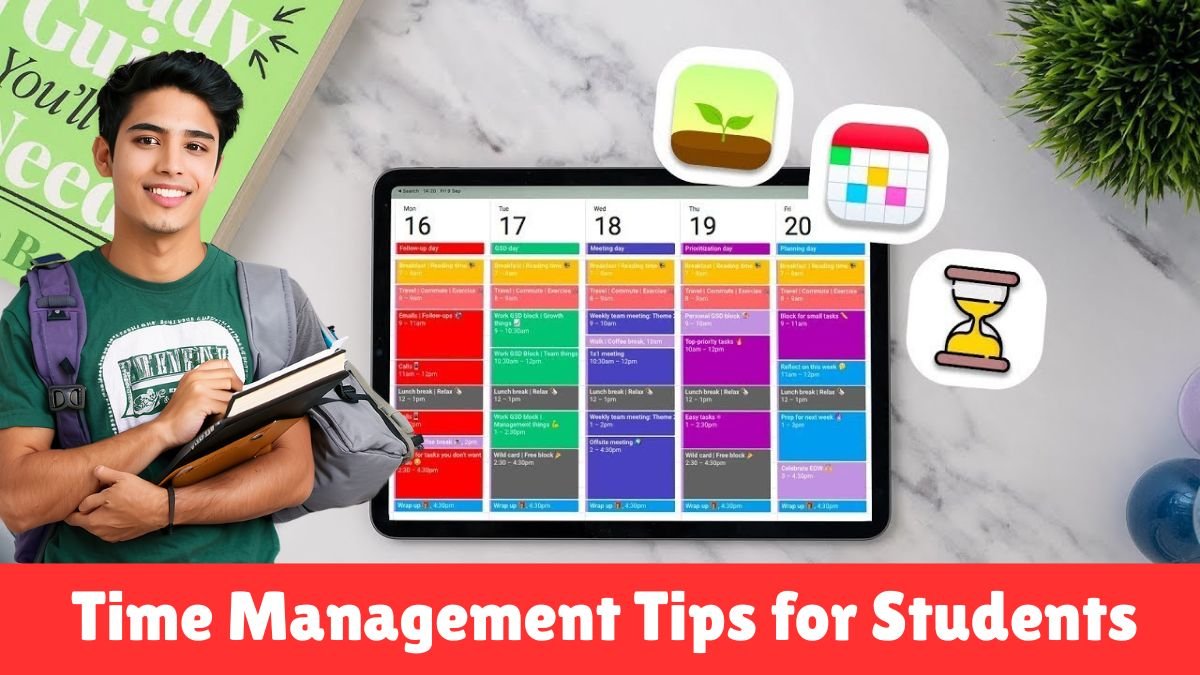Time management is a very important skill for students. Studies, homework, classes, family responsibilities, spending time with friends – life can seem a bit complicated with all these things. But if you adopt a little planning and discipline, you can make every day productive and balanced.
1. Clearly define your goal and make a commitment to yourself
The first and most important step is to decide what your goal is. Suppose your goal is to complete graduation or post graduation, then you have to focus completely on it.
As soon as you decide that studies are your priority, tell your family and friends about this at the same time. Why? Because sometimes you will have to study at night, do assignments on weekends or not go to a party. If your loved ones understand your journey, they will definitely support you.
A small story:
When I was studying, I had to miss a big New Year party – which was at a Hollywood studio where the ‘Thriller’ music video was shot. All my friends went there, but I chose my studies.
I still remember that party, but more than that I remember the value of my degree.
2. Set priorities and make a to-do list
It is very important to set a target for every day. For this, make a to-do list – in which you include those tasks and people who matter the most to you.
For example:
- 7 to 8 am – Morning routine
- 8 to 2 – Class
- 3 to 5 – Assignment
- 6 to 7 – Family time
- 9 to 10 – Revision
But keep one thing in mind: always keep studies as the top priority. If studies are low on your list, then maybe you are not ready to fully commit yet.
3. Plan your time properly – Prepare a schedule
A proper timetable can give an easier time. Write down a daily or weekly timetable that includes classes, homework, breaks, meals, exercises, and bedtime.
What to do?
- Use your phone’s calendar app
- Set alarms – to start studying and take breaks
- Nope, maybe it just ended up with all the elements of a good one. You should probably pick something like Google Calendar, Notion, or Todoist for managing your time.
A plan for the day keeps a person’s mind on target and prevents the unnecessary distractions from wandering.
4. Use planners or apps smartly
If you are comfortable with technology, planning apps can help you a lot. You can also keep a diary or study planner if you want.
- To track daily routine
- To remember deadlines
- To mark class schedules and exam dates
Take out 10 minutes every night to review the next day – what to do, how many hours it will take, where to take breaks, etc.
5. Set realistic and small targets
Instead of setting big targets, divide it into smaller parts.
Example:
- “Today I will write the first page of the research paper.”
- “Tomorrow I will solve 5 MCQs.”
- “I will practice math for 30 minutes every day.”
This will not overwhelm your mind and will also keep your motivation intact.
You can even say that a bit of brilliance is involved with this is maintaining a time-log. Keep a record of the time spent doing each task; it will later stand you in better stead in matters of decision-making.
6. Keep distance from distractions
Mobile, social media, TV, unnecessary chatting – all these are time killers. While studying:
- Turn off the phone’s internet or turn on do not disturb mode
- Open social media apps only at a fixed time
- Sit in a quiet place, so that your attention is not distracted
- If there are many people at home, close the door of your room or put up a ‘Do Not Disturb’ board.
7. Don’t hesitate to ask for help
If you are having trouble with time management, talk to your parents, siblings or friends. Explain how important your studies are.
If you are having difficulty in studies:
- Ask your teachers
- Talk to a college counselor
- Form a study group with classmates
Remember: Asking for help is not a weakness, but wisdom.
8. Self-care is equally important
Time management does not mean that you become a machine. It is very important to take care of yourself.
What to do:
- Take 7-8 hours of sleep every day
- Eat healthy food
- Take a 10-minute break after every 45-60 minutes of study
- Walk or do light exercise 2 days a week
Only if your body and mind cooperate, will you be able to perform well consistently.
9. Be flexible – learn to adapt to the situation
Sometimes the plan does not work, do not be disappointed. Life has ups and downs. If some day time management is not right, then consider it a lesson and try better next time.
A small advice I got:
“Never underestimate your life.”
Many times we say – “I wish Friday comes.” But that time is also yours. Every day is valuable.
Conclusion – You manage the time, not time you
Time management is not magic, it is a habit that is formed gradually. When you start planning your day, life starts to feel easier.
Start with small steps:
- Make a list
- Create a daily schedule and follow it
- Complete small tasks
- Give yourself time and take breaks
Remember, your degree journey is not a race, it’s a journey – sometimes you can slow down and sometimes you can take a break. Sometimes we will walk, sometimes we will run fast. But if you keep walking, you will definitely reach your destination.









